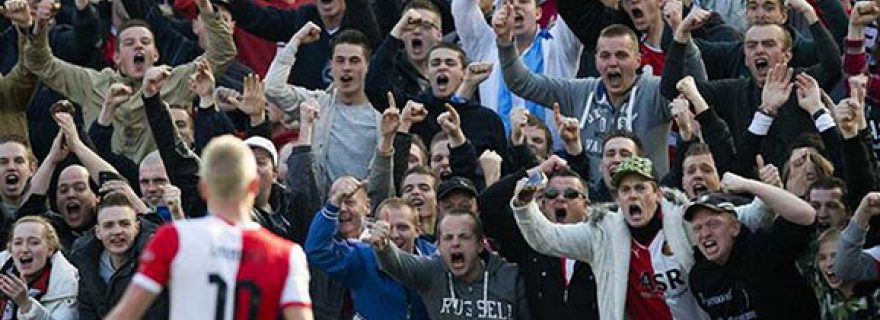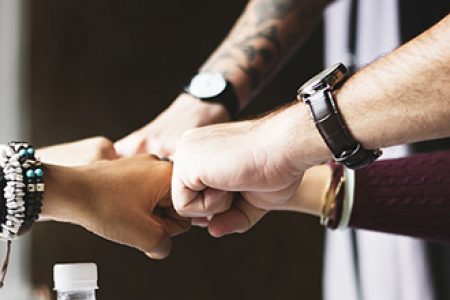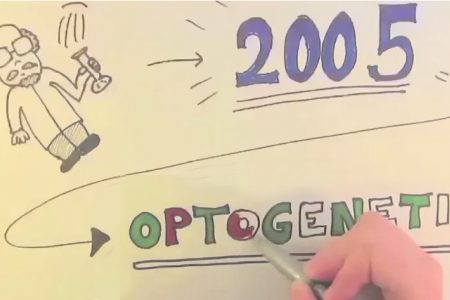Make Feyenoord diehards part-owners of the club
According to journalist Sjoerd Mossou, the “raw” nature of Feyenoord attracts troublemakers. So the “DNA” of the club needs to change. But what is actually the DNA of a group, and how do you change it?
In mid-September, Feyenoord played Manchester United on their own home ground in Rotterdam. To avoid renewed problems and keep the threat of UEFA sanctions at bay, half the stadium was left empty, and nets were hung up to stop people throwing things onto the pitch. On the Dutch TV show Studio Voetbal, sports journalist Sjoerd Mossou commented that Feyenoord’s “working-class culture” and “rawness” are part of the beauty of the club, but also attract a certain type of people who cause trouble. The “DNA” of the club needs to change, Mossou claimed, so that the “rawness” stays, but the hooliganism goes. But what exactly is that DNA, and how do you go about changing it?
Groups say who we are
Groups provide people with two things: outcomes and identity. Cooperation can produce outcomes (capital, points, etc.) that individuals could never achieve alone. That’s the instrumental function of groups. In addition, individuals derive part of their identity from groups. Groups say something about who we are; that’s the identity function of groups. One of the things that makes football attractive is that it perfectly combines these two core functions of groups.
When you reflect on the DNA of a group, you’re inclined to think along the lines of identity. Identity is indeed a powerful tool for steering people. Employees will work harder if you respect who they are (e.g. a Muslim woman who wishes to wear a headscarf); this is often more effective than material rewards. But here we’re talking about identities that have already been formed. Laying down who people should or should not be, on the other hand, often provokes defiance. This holds for adolescents. It holds for hooligans. In fact, it holds for just about everyone.
Create ownership
An instrumental approach, then? Few people become fans of a club with the aim of getting rich. Yet the key to changing the DNA of a club could lie with creating a feeling of ownership among fans, by means of shares, for instance. And it’s to Manchester, in fact, that Feyenoord could turn for inspiration.
One of the reasons why hooliganism has virtually died out in the UK is perhaps rather banal: ticket prices have risen so drastically that the composition of the audience has changed. As Nick Hornby puts it in Fever Pitch: “Young working-class males had their chance and blew it. Middle-class families will not only behave themselves, but pay much more to do so.”
However, in a surprising counter-reaction to this and other forms of commercialization, a group of Manchester United fans struck out on their own and set up the club FC United of Manchester. Through a system of shares, the fans themselves are the owners of this club. The aim was not only to keep football accessible, but above all to bring back the sense of community. This generated not only capital, but perhaps more importantly, social capital.
Feeling of ownership
In psychology, this is known as the mere ownership effect. If people have the feeling that something belongs to them, the value that thing has for them increases and they want to protect it. Ok, so a share may not in itself be enough to stop a diehard hooligan from throwing a cigarette lighter onto the pitch. But a collective sense of ownership will increase social control and responsibility. And this applies to every bench and rank in that stadium: what matters is the feeling of ownership; the actual extent of that ownership is of secondary importance.
Now the club is in good financial health again, Feyenoord doesn’t have to do it for the money. But increasing fans’ feeling of ownership can lead to more social control and responsibility. At the same time, it can help reduce the animosities between the managers and the supporters. And above all, indirectly, it strengthens Feyenoord’s identity. An instrumental approach suits this club: hard work, hard results. Leave all that “identity for identity’s sake” to a certain other club (that will remain nameless)...
A Dutch version of this blog appeared in NRC at September 20th





